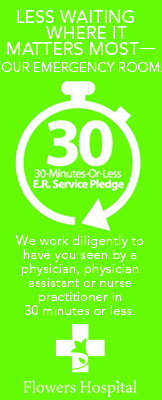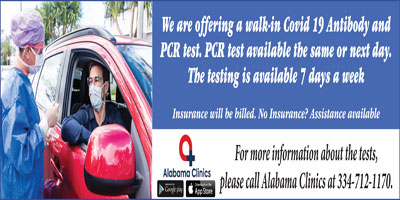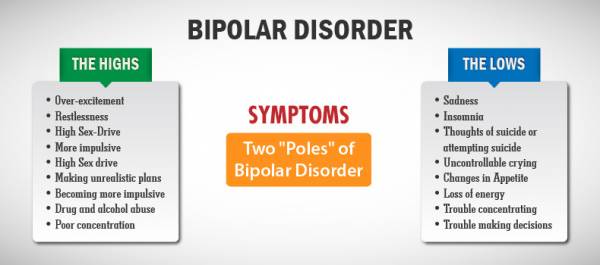Bipolar Disorder - You Are Not Your Illness
Danna VegaViewed: 4005
Posted by: Al Clinics
[email protected]
334-712-1170
Date: Nov 06 2018 10:48 AM
Bipolar disorder affects approximately 6 million Americans. Also known as manic depressive illness, bipolar disorder typically begins in adolescence or early adulthood and continues throughout life. Bipolar disorder is characterized by extreme highs (mania) and severe lows (depression). Unfortunately, 15% of these people will end their lives by suicide. However, new studies are constantly expanding the range of possible treatment options and with proper treatment, most people are able to lead fulfilling and productive lives.
There are four basic types of bipolar disorder with all of them involving clear changes in mood, energy, and activity levels. Sometimes mood episodes can present themselves with mixed features. This means that the patient may feel very sad, empty or hopeless while at the same time feeling extremely energized.
- Bipolar I Disorder – This type of bipolar disorder is characterized by manic episodes lasting at least 7 days followed by depressive episodes typically lasting 2 weeks. This can be described as extremely high highs and extremely low lows.
- Bipolar II Disorder – Defined by a pattern of depressive episodes usually mixed with hypomanic episodes which are periods that are less intense than manic periods.
- Cyclothymic Disorder (Cyclothymia) – Defined by various periods of hypomanic periods mixed in with periods of mild depressive symptoms lasting for at least 2 years. However, these symptoms do not meet the diagnostic requirements for a hypomanic episode and a depressive episode.
- Other specified and unspecified bipolar and related disorders – Defined by bipolar disorder symptoms that do not match any of the three categories listed above.
Although scientists are still studying the possible causes of bipolar disorder, most agree that there is no single factor to blame. It is likely that many factors contribute to the illness and increase risk.
- Brain structure and functioning – Some studies have shown that the brains of those with bipolar disorder may differ in some ways from the brains of healthy people. As scientists learn more about these differences, they are able to predict the type of treatment which will work most effectively.
- Genetics – Some research shows that people with certain genes are at higher risk to develop bipolar disorder than others. However, this is not definitive since studies of identical twins have shown that even if one twin develops bipolar disorder this doesn’t mean that the other twin will develop the disorder, even though identical twins share all of the same genes.
- Family History – Bipolar disorder tends to run in the family. Children with a parent or sibling who have bipolar disorder are at higher risk of developing the illness.
Those affected by bipolar disorder experience periods of unusually strong emotion, changes in sleep patterns and activity levels. After being diagnosed by a mental health professional, an effective treatment plan can begin. This treatment usually includes a combination of medication and psychotherapy, or talk therapy. When it comes to medication, it is important to try several and find the ones that work best with the assistance of your physician. Types of medication commonly prescribed include mood stabilizers, atypical antipsychotics, and antidepressants.
If you or a loved one is suffering from bipolar disorder or exhibit some of the symptoms above, feel free to walk in or book an appointment at Alabama Clinics today. We are open 7 days a week. We have a great psychiatry department lead by Dr. Meghani, who is one of the best in South Alabama. Treatment is our job, faith is yours.
Alabama Clinics
2812 Hartford Hwy, Suite 1
Dothan AL, 36305
334-712-1170
www.alabamaclinics.com
We are open 7 days a week!
<- back


 (2)1.jpg)



.jpeg)











1.jpg)







.jpeg)

.jpg)








 (1).gif)




.jpg)




1.jpg)


















.jpg)










.jpg)

1.jpg)







.jpg)








1.jpeg)



 (2).jpg)











.JPG)




